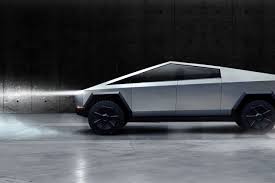Tesla continues to innovate to support autonomous car technology and artificial intelligence (AI) them. The latest move is targeting fourth-generation high-bandwidth memory chips (HBM4) from Samsung and SK Hynix to improve the performance of their flagship super computers, Dojo.
According to the Techspot report quoted by Otodiva, Dojo is a super sophisticated computer that Tesla uses to train neural networks on systems “Full Self-Driving” (FSD). At the moment, Dojo uses an HBM2e memory chip which is considered less than optimal for AI's growing data processing needs. The HBM4 chip offers great potential for increased performance by providing significantly greater data bandwidth and more efficient power consumption.
Why HBM4 Is Tesla's Choice?
HBM4 is specifically designed to handle very large data processing with high power efficiency. TrendForce reports that this technology can significantly improve Dojo performance. This chip is optimized for AI systems and other data-intensive applications, such as data centers and autonomous cars.
According to SK Hynix claims, their HBM4 chip has the bandwidth 1,4 times larger than its predecessor, HBM3e, with power consumption 30% lower. If this data is accurate, HBM4 can reach bandwidths of up to 1,65 TB per second. Another advantage is the integrated logic die which acts as a controller, provides increased speed and energy efficiency.
Tight HBM Market Competition
The HBM market is currently dominated by two large companies, namely SK Hynix and Samsung. These two technology giants compete to provide the best chips for world technology companies, including Microsoft, Meta, and Google. With the projected market value of HBM reaching USD 33 billion on 2027, innovation is the key to winning the attention of big clients like Tesla.
HBM4 App for Tesla
Apart from improving Dojo performance, analysts believe that Tesla may also use HBM4 for data centers and autonomous car systems. The power efficiency and processing speed offered by HBM4 is a perfect fit for Tesla's evolving technology needs.
HBM4 also plays an important role in ensuring system stability when processing large data, such as training complex AI algorithms. With this technology, Tesla could not only accelerate FSD development but could also strengthen its position as a leader in autonomous car technology.
Tesla's Future with HBM4
If Tesla's collaboration with Samsung or SK Hynix is realized, this could be a revolutionary step in the development of supercomputer technology. With improved Dojo performance, Tesla can accelerate innovation in AI and autonomous car technology, creating new standards in the automotive industry.
Support for the HBM4 chip also opens up new opportunities for Tesla to explore wider technological applications, including expansion into other sectors such as AI-based cloud services or big data analysis.
Tesla's move to adopt the HBM4 chip shows its commitment to developing AI technology and autonomous cars. With this innovation, Tesla is not only accelerating the journey towards the vehicle of the future but also building a strong foundation to become a pioneer in the era of AI-based technology.


